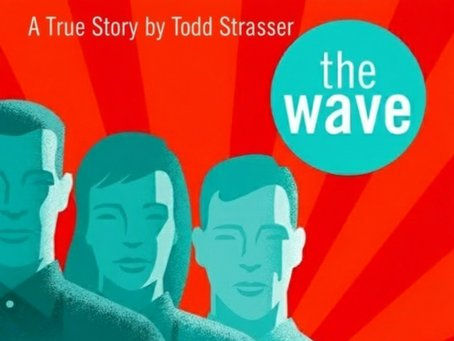top of page
Balanced Learning Resources
Lesson Plans
Search
Civic Responsibility


Social Justice or Control? Communism - When Justice Becomes Control
Grade Level: 7-8 Duration of video 1: 15 minutes, 26 seconds Duration of video 2: 3 minutes, 52 seconds Duration of video 3: 18 minutes, 10 seconds Themes : Propaganda vs. justice, Communism, authoritarian control, manipulated language, media literacy, moral responsibility Description: This lesson uses historical case studies of authoritarian regimes to help students tell the difference between authentic justice movements and propaganda movements that use justice-themed la


THE WAVE: Nazism: Real Social Justice vs. Hateful Hidden Agendas, Learning to Tell the Difference Between Unity and Division
Grade Level: 8–12 Duration of video 1: 7 minutes, 28 seconds Duration of video 2: 44 minutes Themes: Social psychology, Holocaust awareness, Nazism, World War II, media literacy and propaganda, social justice vs. hate movements, active citizenship, moral responsibility Description: This lesson begins with The Path to Nazi Genocide , a short introductory documentary that examines how the Nazis systematically excluded Jews from society and justified escalating violence. Stude


"Louis Brandeis – A Justice for All"
In this lesson, students will watch the informative and engaging PBS mini-biography Louis Brandeis: The First Jewish Supreme Court Justice and reflect on the life and legacy of Justice Louis Brandeis (1856–1941), a trailblazing Jewish American. Students will explore his contributions to civil liberties, workers' rights, and the foundational right to privacy.


RBG: A Documentary Exploring the Life and Legacy of Ruth Bader Ginsburg
In this lesson, students will watch the informative and endearing documentary RBG (2018) and reflect on the life and career of Supreme Court Justice Ruth Bader Ginsburg (1933-2020), a Jewish American. Students will explore her contributions to gender equality and civil rights and discuss how her legacy continues to influence the American legal system and our society today. Through this lesson, students will analyze the role of the judiciary in shaping laws and societal change


HAYM SOLOMON: The Financier Who Helped Fund America's Freedom
Haym Solomon was a Jewish immigrant, financier, and unsung hero of the American Revolution who played a crucial role in securing funds for the war effort. Born in Poland in 1740, he immigrated to America in 1772 and became a successful merchant and banker.


The Son of Hamas Exposes The Truth On Israel - Gaza: Mosab Hassan Yousef with Douglas Murray
This lesson focuses on the perspectives and experiences of Mosab Hassan Yousef, a former Hamas member who later became an informant for Israel. Students will learn about the complexities of the Israeli-Palestinian conflict, particularly through Yousef's perspective. The lesson will also address common misconceptions and the political narrative of genocide, particularly the claims surrounding the Gaza conflict.


Dorothy Pitman Hughs: Life and Legacy
In this lesson, students will explore the life and contributions of Dorothy Pitman Hughes, a Black feminist, child welfare advocate, and community activist.


60 Minutes on Sir Nicholas Winton
This is a "60 Minutes" episode that focuses on the story of Sir Nicholas Winton, a British humanitarian who famously rescued hundreds of Jewish children from Nazi-occupied Czechoslovakia just before World War II, often referred to as "Nicky's Children." Meet Sir Winton and the people he saved!


Schindler’s List
Schindler’s List is a powerful film by Steven Spielberg that tells the true story of Oskar Schindler, a German businessman who saved over 1,100 Jewish people during the Holocaust by employing them in his factory. The movie shows the horrors of the Holocaust and the impact one person can make.


Miracle at Moreaux
An exciting, endearing film about how a Catholic nun, Sister Gabrielle (played by Loretta Swit), and a group of Christian school children in France helped three Jewish children escape the Nazis. Due to antisemitic lies their parents told them, the Christian children are, at first, not very friendly to these unexpected Jewish strangers. In a short time, however, the children develop a strong bond.


The Number on Great Grandpa’s Arm
This short family film, presented with the Museum of Jewish Heritage, introduces Holocaust history to a new generation. When 10-year-old Elliott asks his 90-year-old great-grandfather, Jack, about the number tattooed on his arm, he sparks an intimate conversation about Jack’s life that spans happy memories of childhood in Poland, the loss of his family, surviving Auschwitz, and finding a new life in America.
bottom of page
